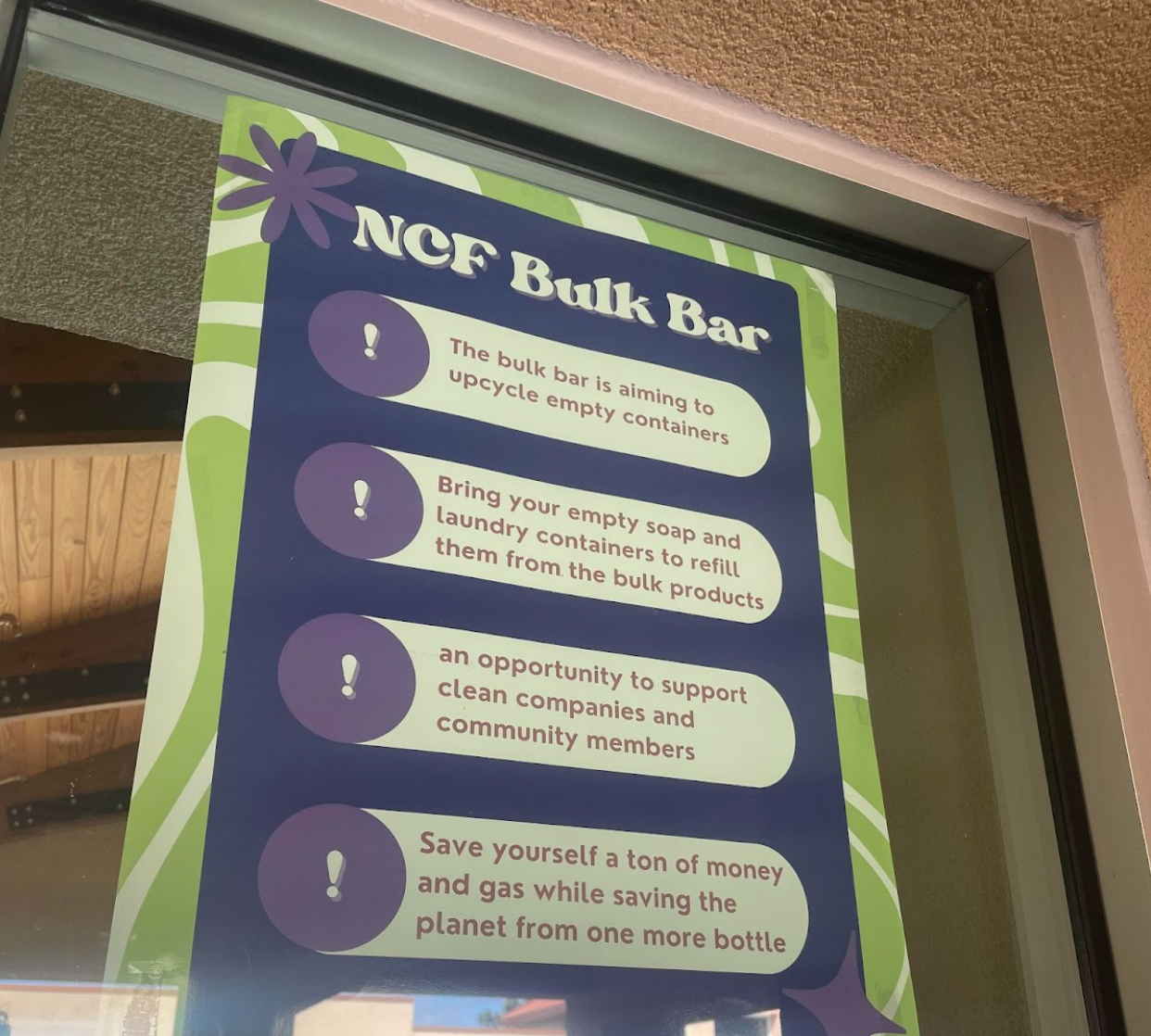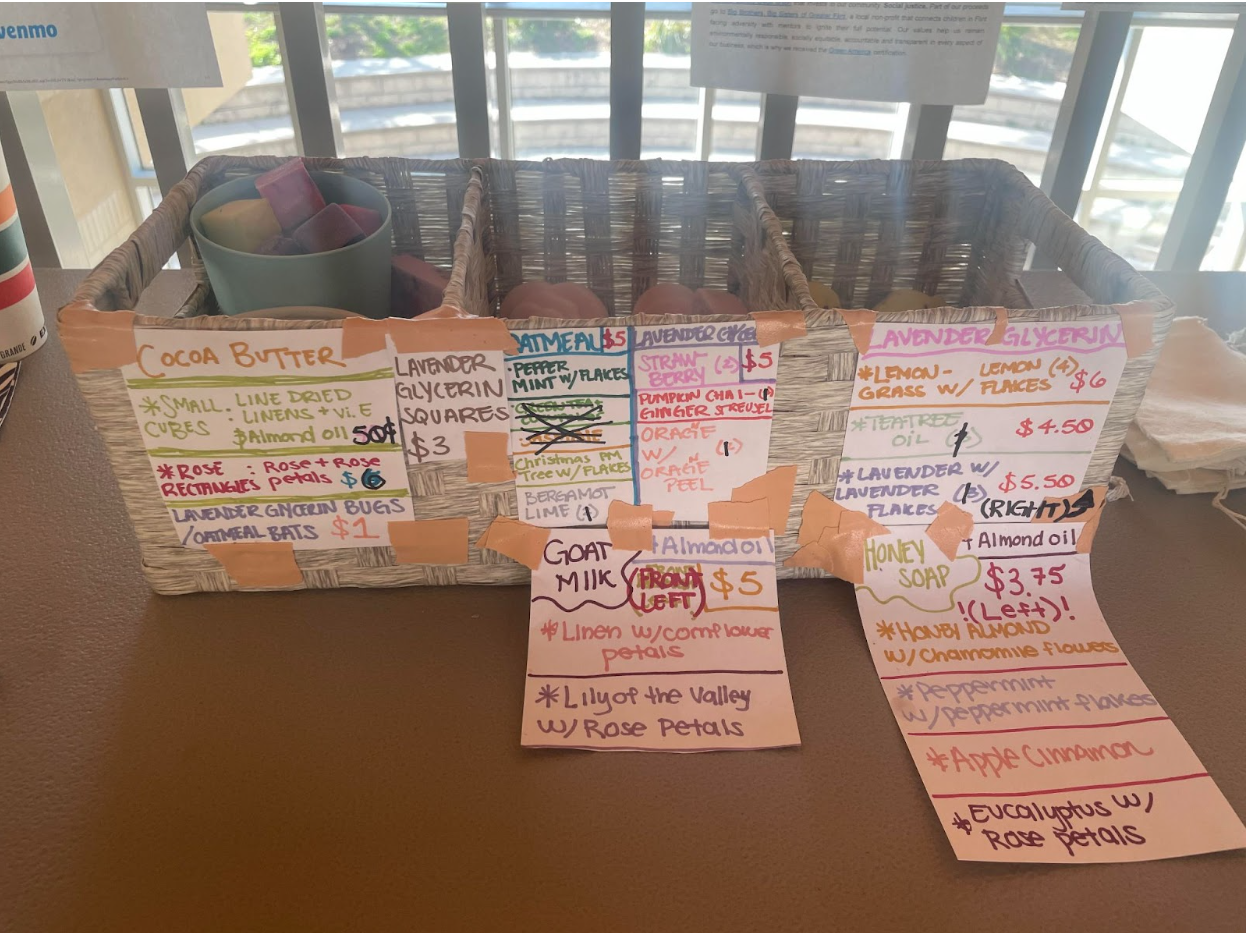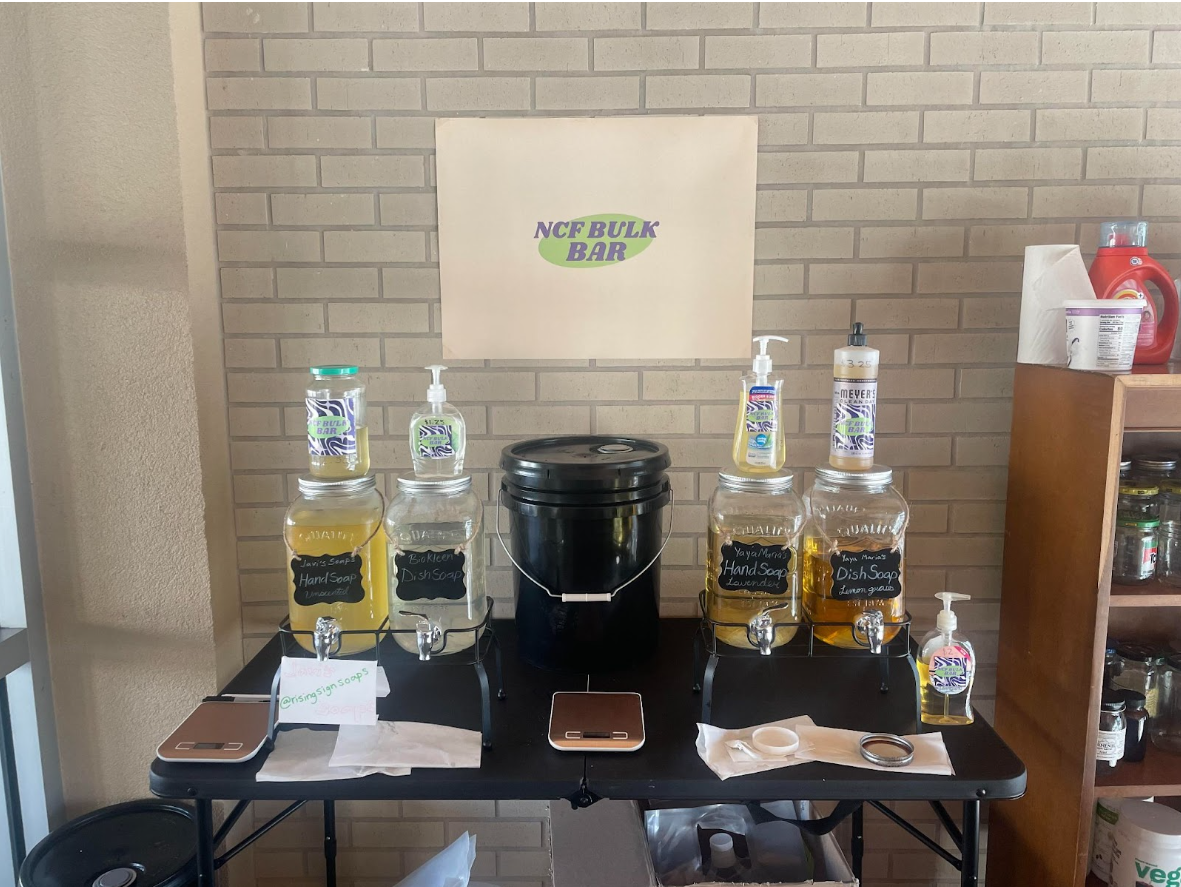Sustainability is constantly at the forefront of conversations surrounding climate change and the sheer amount of waste created by human consumption. Generation Z has stepped up in creating initiatives such as the Food Forest and the composting tutorial to achieve a more sustainable society that seeks to mitigate the harm already done to the environment. Among those seeking change is thesis student Jessie Merkel, who has dedicated the past couple of semesters to setting up a small store on campus to facilitate sustainability for students on a budget. The Bulk Bar is not just a thesis project, but an effort to enact change on campus and create a more environmentally-friendly student body.
As an Environmental Studies Area of Concentration (AOC), Merkel decided to recreate how bulk distribution centers—namely Sans Market located in St. Petersburg—can allow for sustainable shopping practices of essentials. Completing a set-up of that kind takes years of planning and a substantial amount of funds, so small-scale was the way to go according to Merkel.
The thought then turned to action when reaching out to peers and friends who hold the same compassion for environmentally-friendly consumption practices.
“I just hopped on, ready to help wherever Jessie needed me to help,” Zero-Waste Coordinator for the Council of Green Affairs (CGA) and thesis student Nicole Silvera stated. “Whether that was trying to figure out how to source the stuff, where the heck the Bulk Bar was going to be and setting up the actual bar.”
Sustainability Living Learning Community (LLC) Resident Advisor (RA) and thesis student Lex Gorman figured the balcony of Z Dormitory would be the ideal spot, with pre-existing furniture and ample space for the bar, its supplies and visitors.
“I reached out to Jessie as soon as I saw the students list email about the Bulk Bar, because I loved the idea and really wanted to help out with whatever I could,” Gorman explained. “We decided the upstairs Z Lounge would be a great place for the bar, so we worked together to get the permission to put it up there.”
Other notable contributors are first-year Luke Heller and thesis student Alyssa Boynton, who volunteer their time manning the bar and keeping it open for students to access. Thesis student Zachary Fahringer is also responsible for creating the mathematical formula used for the pricing of the products.

Through the Green Fee—a fee students are charged in their payments to the school, allocated by the CGA and totalling $28,000 each year—they were able to order supplies such as dispensers, drip mats and scales for the bar. Funds were also taken from an Environmental Studies thesis grant that allocates funds for thesis students in the program to use in their research and projects.
“We mostly focused on the bare necessities of what it takes to run something like this,” Merkel said. “Because it’s also a zero-waste endeavor, I tried to source from other places instead of immediately deciding I needed to purchase something to make things work out.”
Former New College student Javier Nunez aided in sourcing organic, unscented hand soap that doubles as body wash in bulk quantities. Third-year Sadie Landreville also lends time to create bar soaps to be sold at the Bulk Bar. Both students receive compensation for their products.
“100% of the profits go back to Sadie to make more bar soaps,” Merkel added. “I’m just a vendor, I’m just a location for her.”

The main goal of the bar, as stated by Merkel, is to redirect waste produced by single-use hygiene products and instead promote the reuse of these vessels by washing and refilling bottles, jars and jugs.
“A big thing that I’m trying to do is to tackle that at the source and put a bunch of these things back into the cycle of renewal,” Merkel remarked. “And to share with students the idea that their life cycle isn’t over just because it’s empty.”
The Bulk Bar stands as a space for students, by students.
“It took a village to put this together, but it also took a lot of people rallying around Jessie and her idea,” Silvera stated. “This is an example of what a school like New College can do and hopefully in the bigger context of what we’re going through now, we can still be a space where projects like this can happen.”
For more updates on the Bulk Bar, visit their instagram page @ncfbulkbar

